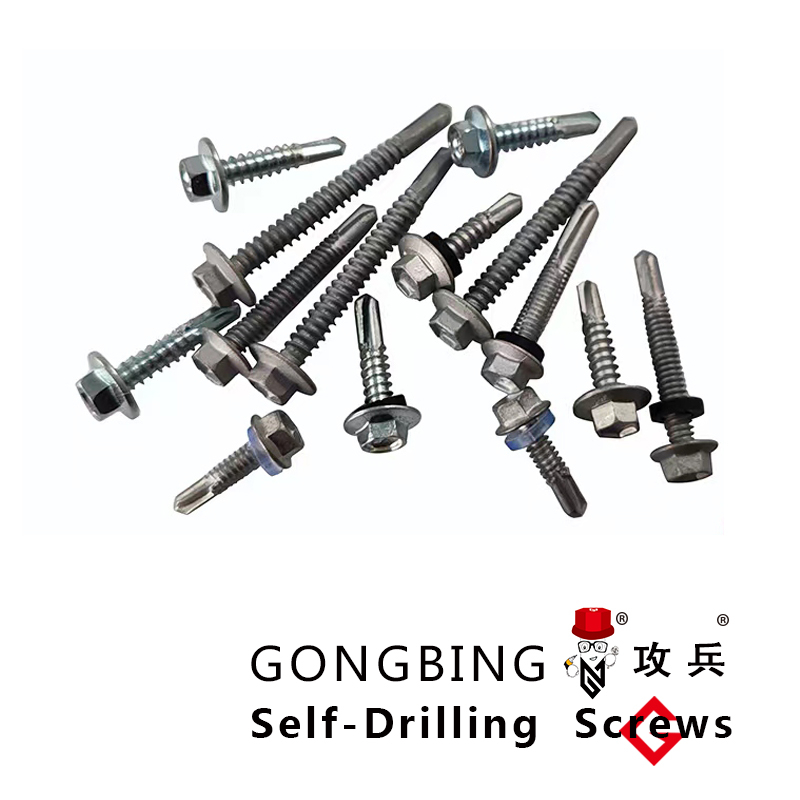metal screws self drilling
Understanding Metal Screws The Advantages of Self-Drilling Screws
Metal screws play an essential role in various construction and manufacturing applications. Among the myriad types available, self-drilling screws have gained popularity for their unique ability to simplify the fastening process. Their design is specifically engineered to eliminate the need for pre-drilling, thus saving time, improving efficiency, and enhancing overall project outcomes.
What Are Self-Drilling Screws?
Self-drilling screws, often referred to as tek screws, are a type of fastener equipped with a drill-like point that allows them to bore into materials without the need for a pilot hole. This feature distinguishes them from traditional screws, which typically require pre-drilling to avoid material splitting and achieve a secure hold.
Benefits of Self-Drilling Screws
1. Time Efficiency One of the most significant advantages of self-drilling screws is the time saved during installation. Without the necessity of pre-drilling, contractors can complete projects more rapidly, moving from one fastening task to another with minimal delays. This efficiency is particularly beneficial in large-scale construction projects where time is critical.
2. Cost-Effective Solution Reduced labor time directly translates into cost savings. The quicker installation process means less man-hours are required on-site, which can significantly lower overall project costs. Additionally, self-drilling screws are often competitively priced compared to other fastening options, making them an economical choice for both contractors and DIY enthusiasts.
metal screws self drilling

3. Versatility Self-drilling screws are versatile and can be used in various materials, including wood, metal, and plastic. Their adaptability allows them to be employed in diverse applications such as roofing, siding, and metal fastening. This multi-material capability makes them a go-to option for construction professionals and hobbyists alike.
4. Enhanced Hold and Durability The design of self-drilling screws ensures a strong, secure hold. With their sharp, pointed tips and threaded shafts, they can penetrate materials effectively, creating a robust joint that withstands stress and environmental factors. Furthermore, many self-drilling screws feature coatings that increase corrosion resistance, enhancing longevity, especially in outdoor applications.
5. Reduced Risk of Material Damage Pre-drilling can sometimes lead to splitting or damage to the material being fastened, particularly in wood products. Self-drilling screws reduce this risk, as their design minimizes the impact on the surrounding material, leading to cleaner, more professional-looking results.
Choosing the Right Self-Drilling Screw
When selecting self-drilling screws for a project, it is crucial to consider factors such as the material being fastened, the thickness of the material, and environmental conditions. Self-drilling screws come in various sizes, materials, and coatings, such as zinc-plated or stainless steel, to suit specific application needs. Additionally, the type of head (such as flat, pan, or hex) can influence the screw's performance and aesthetics.
Conclusion
Self-drilling screws are a vital component in modern construction and manufacturing. Their design offers numerous advantages, including time savings, cost-efficiency, and adaptability, making them suitable for a broad range of applications. As building practices continue to evolve, the demand for versatile and reliable fastening solutions like self-drilling screws is likely to grow. Embracing this innovative fastener can lead to more streamlined processes and higher-quality outcomes in projects of all sizes. Whether you're a seasoned contractor or a DIY enthusiast, understanding and utilizing self-drilling screws can elevate your construction experience.
-
Weatherproof Plastic Expansion Anchors for OutdoorNewsJun.06,2025
-
Sustainability in the Supply Chain: Eco-Friendly TEK Screws ProductionNewsJun.06,2025
-
Load-Bearing Capacity of External Insulation FixingsNewsJun.06,2025
-
Double Head Bolts: Enhancing Efficiency in Industrial MachineryNewsJun.06,2025
-
Corrosion Resistance in Chipboard Screws: Coatings for Wholesale DurabilityNewsJun.06,2025
-
Butterfly Toggle Bolts : Enhancing Structural ResilienceNewsJun.06,2025
